-
The Stages of Invisalign Treatment
Do you want straighter teeth without having a mouth full of brackets and wires? Invisalign could be right for you! This innovative technology gives you the smile you have always wanted in a discreet, comfortable way. Three simple steps are all that’s standing between you and the smile of your dreams.
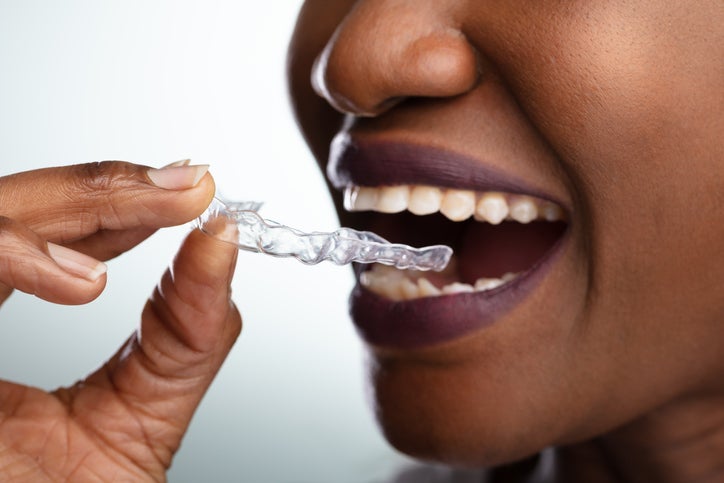
Step 1: Plan Your Invisalign Treatment
Whether you have mildly crooked teeth or a severe bite problem, Invisalign may be an option for you. The first step is to visit a dentist for digital x-rays and a scan of your mouth. Powerful technology and your dentist’s expertise combine to create a digital roadmap of your path to a straighter smile.
Once your plans are finalized, you can sit down with your dentist and view your virtual treatment plan. You’ll see exactly what your bite looks like now and how it will gradually shift, with each successive aligner, until your smile is flawless. Most patients agree to a treatment plan lasting nine to 15 months.
Step 2: Wear Your Aligners
Invisalign aligners are made using an advanced printing process that ensures a comfortable, streamlined fit. Once they’re ready, you’ll need to schedule a time to pick them up at the dentist’s office. You’ll try them on, have any questions answered, and receive specific instructions for wearing your aligners.
Rest assured that Invisalign fits your life—it doesn’t interrupt it. You can keep eating all your favorite foods, play the sports you love, and brush and floss without pesky brackets and wires getting in the way. The removable aligners are easy to clean, and with proper care, they don’t increase your risk of tooth decay.
Most patients wear each pair of aligners for two weeks before moving onto the next set. For your Invisalign treatment to stay on track, you must wear your aligners for at least 22 hours a day. This leaves time to remove them for eating, but you should wear them at all other times.
To make sure your teeth are progressing the way they should, you should schedule periodic checkups with your dentist. This is also when you receive your next batch of aligners.
Step 3: Wear a Retainer
While your aligners are a crucial step for straightening your smile, a retainer is what makes the results last a lifetime. Vivera retainers are made with the same advanced technology as Invisalign, meaning they are custom to your mouth and less likely to crack than other clear retainers. You may only need to wear your Vivera retainers at night, so you can continue smiling with complete confidence during the day.
Park 56 Dental is a certified Invisalign provider in NYC. We can help you plan your smile transformation in our spa-like office, where you’ll receive patient-centered care during hours that fit your schedule. To learn more about Invisalign, please contact us online or call (212) 826-2322 and schedule a complimentary consultation. We serve Midtown, Central Park, Upper East Side, Park Avenue, and the surrounding Manhattan and NYC areas.
-
Can Probiotics Help Your Oral Health?
Probiotics are best known for promoting a healthy digestive system. However, that’s not all they can do. Here are some lesser-known facts about probiotics and how they can help your oral health.
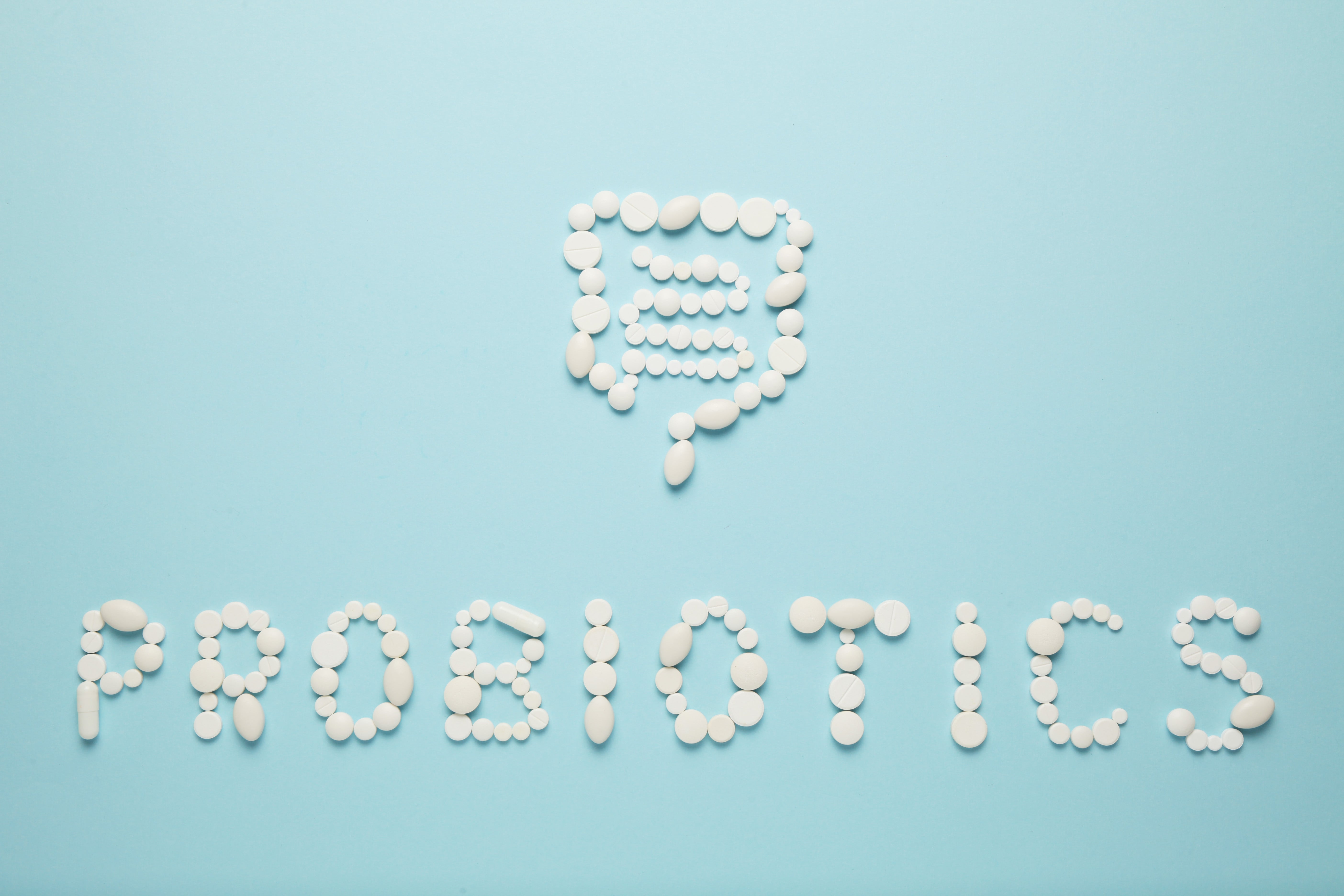
What are Probiotics?
Probiotics are live bacteria and yeast that are beneficial to humans. They are found in certain foods and can also be taken as supplements. Examples of probiotics include:
- Lactobacillus, which helps with diarrhea and makes lactose easier to digest
- Bifidobacterium, which helps with irritable bowel syndrome (IBS) and other inflammatory digestive conditions
- Saccharomyces boulardii, which helps combat digestive issues that cause diarrhea
How Probiotics Work
Bacteria are generally considered harmful. However, your body is full of bacteria, both good and bad. If you have digestive issues caused by too many bad bacteria, probiotics can help balance things out. Likewise, when you lose beneficial bacteria, such as from taking antibiotics, probiotics can help replace them.
Health Benefits of Probiotics
The main reason people take probiotics is to promote a healthier gut, but good bacteria can improve your health in many other ways as well. Research shows that probiotics help treat:
- Skin conditions, including eczema
- Mental health
- High cholesterol and hypertension
- Allergies and colds
- Bad breath, gum inflammation, and oral cancer
Products that Contain Probiotics
In general, foods that have been fermented or enriched in some way contain probiotics. These include:
- Yogurt
- Milk
- Soft cheese
- Miso (fermented soybeans)
- Sauerkraut
- Sourdough bread
Probiotic supplements are also available in the form of tablets, capsules, and powders. Some oral health products, including mouthwash and toothpaste, also contain probiotics.
Precautions & Side Effects
It’s safe for most people to take probiotics because these good bacteria and yeasts are already in your body. A majority of the time, probiotics improve health with little to no adverse reactions. However, some side effects are possible:
- An upset stomach may occur within the first few days of taking probiotics.
- People who are allergic to probiotics may have a more severe digestive response.
If you have a weakened or compromised immune system, you should not take probiotics because they could trigger an infection. Don’t take probiotics while you are seriously ill or recovering from surgery.
Using Probiotics to Help Your Oral Health
It’s wise to consult with a dentist before taking probiotics for oral health. The types of products available include probiotic toothpaste, which rids your mouth of bad bacteria while leaving good bacteria intact, and probiotic mouthwash, which helps prevent plaque buildup. Just remember, probiotics are not meant to replace other good oral health habits, including brushing, flossing, eating a healthy diet, and having your teeth professionally cleaned twice a year.
Looking for a qualified dentist in New York? Park 56 Dental can meet your needs in our spa-like office. We serve Midtown, Central Park, Upper East Side, Park Avenue, and the surrounding Manhattan and NYC areas. Contact us at (212) 826-2322 to schedule your complimentary consultation today.
-
How Often to Replace Your Toothbrush
You might brush your teeth twice a day, but how closely do you look at the bristles before sticking them in your mouth? Get the most out of your oral care routine by taking care of your toothbrush and replacing it as needed.
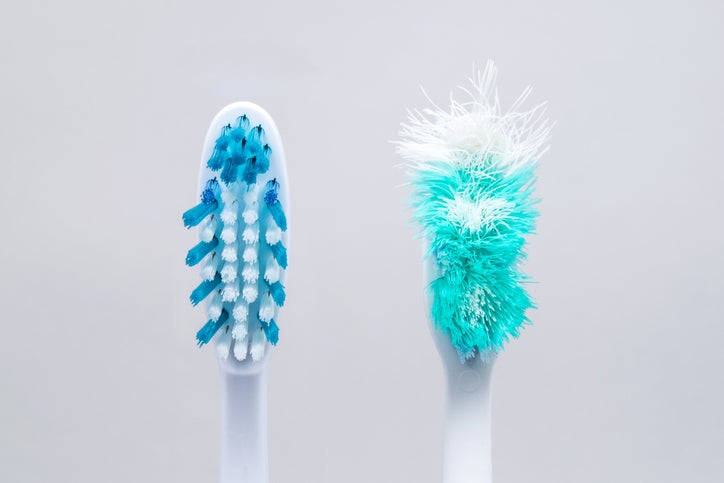
When to Replace Your Toothbrush
The American Dental Association (ADA) recommends changing your toothbrush every three months. This is about how long it takes for the bristles to become frayed. When this happens, your toothbrush loses the ability to scrub your teeth and remove plaque effectively, making you more vulnerable to cavities and gum disease.
It’s also possible for germs to build up within the bristles. That’s why you should also replace your toothbrush after being sick. Continuing to use the same one could make you sick again. For this reason, it’s wise to have a backup toothbrush or two in your medicine cabinet.
Take Care of Your Toothbrush
You must clean and store your toothbrush properly to keep fungus and bacteria at bay. Start by rinsing it thoroughly after each use to remove all traces of saliva and toothpaste.
Then, store the toothbrush upright and uncovered so it dries quickly. Choose a location as far away from the toilet as possible to prevent fecal matter from settling on the bristles. Don’t share your toothbrush with anyone, and keep each family member’s toothbrush separate from one another so the bristles don’t touch and spread germs.
Only cover your toothbrush while traveling to prevent it from touching unsavory surfaces. Even then, only pack your toothbrush in a travel case when it’s completely dry.
If you’re concerned about germs, you can use a toothbrush sanitizer. This kills bacteria using steam and dry heat or UV light. While these methods aren’t enough to sterilize your toothbrush, they remove enough oral bacteria to sanitize or disinfect the bristles.
How to Shop for a New Toothbrush
If you realize it’s been more than three months since you replaced your toothbrush, it’s time to go shopping. The most important qualities to look for in a new toothbrush are soft bristles and a small head to get in hard-to-reach places. Other characteristics—including the handle type, head shape, and bristle features—come down to personal preference.
You might also consider investing in an electric toothbrush. The incredibly fast-moving bristles are shown to remove 21 percent more plaque and reduce the risk of gingivitis by 11 percent. Powered toothbrushes are easier for children and people with arthritis to operate. They also have removable heads, which you should replace every three months like an ordinary toothbrush.
If you’re unsure about how to care for your toothbrush or what products you should include in your oral care routine, ask your dentist for recommendations. Your professional cleaning twice a year is a great time to find out more about maintaining a beautiful smile. To schedule a complimentary consultation at Park 56 Dental, please contact our NYC dentist office at (212) 826-2322 today.
-
Invisalign: Know Before you Go
If you’re thinking about getting Invisalign, you probably already know it’s a pretty amazing dental advancement. That being said, you probably also have some questions that you’d like answered before you commit. Here, we hope to answer your questions, and maybe some questions you hadn’t even thought to ask.
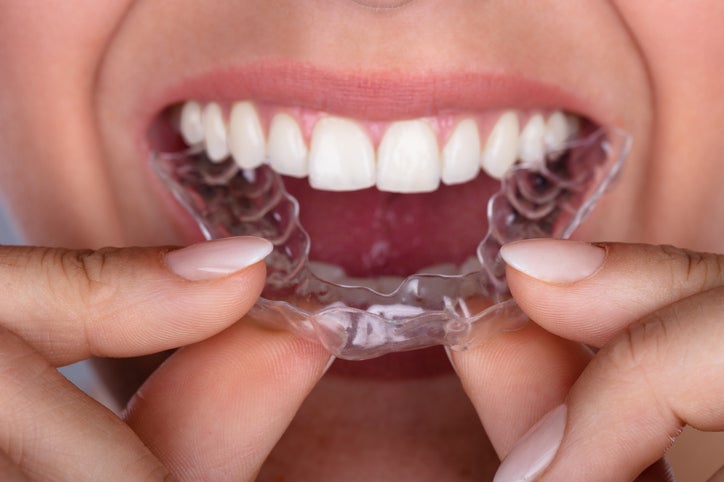
As you probably already know, Invisalign is a method of straightening teeth using nearly invisible aligners, made from impressions taken of your teeth. These impressions are scanned, and these digital scans are used to create a digital model that will tell your dentist how long your treatment should last and how your final results will look. Your dentist can modify the plan, based on your, and some dentists discuss the plan with their patients before modifying it so that the patient’s expectations and preferences can be considered.
Invisalign has many benefits over conventional braces.
- The clear aligners are more aesthetically pleasing than braces.
- Invisalign often works more quickly than conventional braces, because they move many teeth at once, and fewer dental visits are required.
- Because they have no wires or sharp corners, Invisalign aligners are more comfortable than braces.
- Invisalign can move teeth differently than braces can, using less force so there’s not as much risk of shrinking of tooth roots.
- It’s easier to clean your teeth when you can remove your aligners, so your breath will be better.
- When worn 20 hours each day, Invisalign can help relieve TMD symptoms and myofascial pain.
- After your treatment is complete, you can use your aligners as whitening trays or a mouthguard.
With all those positive marks, are there any downsides to Invisalign? Actually, yes, but not many.
- You may lisp for a few days, as you get used to having your teeth covered in plastic. If it’s a problem, though, you can always remove the aligners for a little while if you need to be heard clearly.
- Even though they’re more comfortable than braces, the aligners can still irritate your tongue, gums, and lips.
- Rarely, someone has an allergic reaction to Invisalign. When that happens, the patient receives a full refund.
- At the beginning of your treatment, you may have trouble removing your aligners when it’s time to eat.
- Some providers may charge more for Invisalign than traditional braces.
- You might lose weight, because you’ll have to stop and remove your aligners before eating or snacking. Of course, this may be a mark in your positive column!
If you have questions about Invisalign or are looking for a dentist in New York, consider Park 56 Dental Group, where we provide personalized, quality dental care in a spa-like environment. We serve the Midtown, Central Park, Upper East Side, Park Avenue, and all surrounding Manhattan and New York areas, with a patient-centered practice that has hours to fit your schedule. Schedule your complimentary consultation today by contacting us online or calling us at (212) 826-2322.
What is the Best Kind of Toothpaste to Use?
A trip to the toothpaste aisle can be daunting because there are so many brands and types from which to choose. How can you pick the best kind of toothpaste to use? We’ve got some expert tips to help you decide.
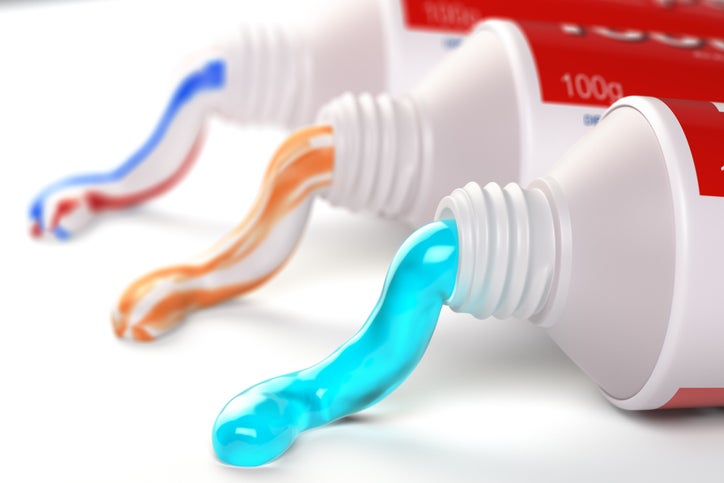
- First and foremost: let’s talk about fluoride. The American Dental Association (ADA) and most dentists agree that fluoride is an essential ingredient in toothpaste. A natural mineral that protects tooth enamel, it’s been proven safe and effective in fighting cavities. In fact, since the addition of fluoride to toothpaste and drinking water a few decades ago, there’s been a significant reduction in dental cavities. However, some people are not comfortable with fluoride. If you prefer to avoid it, look for a natural toothpaste, because many natural formulations do not contain fluoride.
- You may want to look for ADA approval. Toothpaste products sometimes carry the ADA seal of approval, which means that they meet the ADA’s strict requirements for toothpaste. To gain ADA approval, a toothpaste must contain fluoride and other active ingredients that improve oral hygiene, be free from flavoring agents that can promote tooth decay, and be scientifically proven to be safe and effective. Note: ADA approval is voluntary. In other words, the ADA seal of approval guarantees a toothpaste’s efficacy, but a toothpaste that lacks the seal may be just as effective.
- Read the labels for yourself. Sometimes, toothpaste contains ingredients that aren’t suitable for everyone. If you’re sensitive to a certain chemical, flavoring, or sweetener, be sure to make sure it’s not hiding in your toothpaste. For instance, if you get frequent mouth ulcers or canker sores, you might look for a toothpaste that does not contain sodium lauryl sulfate (SLS). Other ingredients you may wish to avoid include saccharin, a sweetener, glycerol, which gives toothpaste a gel-like consistency, and calcium carbonate or silicates, which are abrasive materials.
- Choose your toothpaste based on your dental needs. You might need a tartar control toothpaste to remove deposits of hardened plaque, or a toothpaste for sensitive teeth. Desensitizing toothpaste, with ingredients that block pain, can be purchased over the counter. If you need something more, ask your dentist about prescription toothpaste for sensitive teeth.
- Do you want to whiten? Whitening toothpastes can help remove stains from your teeth, using abrasive ingredients that polish stains off of the tooth’s surface. If you’ve got sensitive teeth, you’ll need to be careful about whitening toothpastes, and ask your dentist about options that are right for you.
If you need a dentist in New York, consider Park 56 Dental Group, where we provide personalized, quality dental care in a spa-like environment. We serve the Midtown, Central Park, Upper East Side, Park Avenue, and all surrounding Manhattan and New York areas, with a patient-centered practice that has hours to fit your schedule. Schedule your complimentary consultation today by contacting us online or calling us at (212) 826-2322.
Tips to Look After your Teeth
Are you doing everything you can to take care of your teeth? Your oral health should be a high priority because the health of your mouth impacts the overall health of your body. Follow these ten tips, and you’ll be able to keep your teeth in tip-top shape.
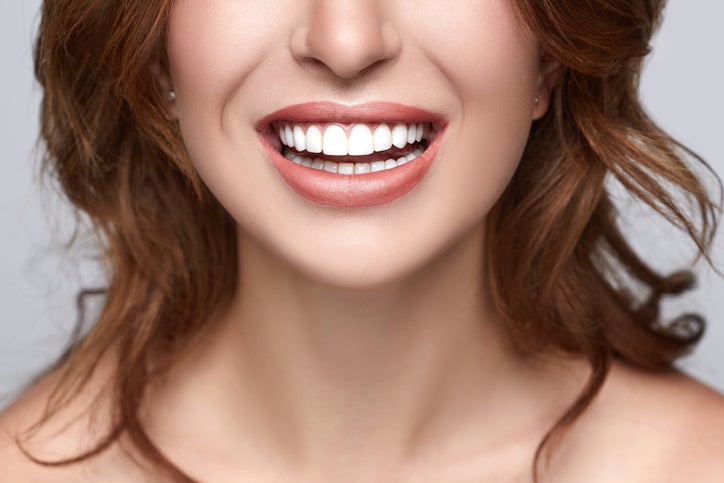
- Brush no fewer than two times each day. It’s best to brush after meals, with a toothbrush that has a small head, for easier access to the back teeth. Use soft bristles, because they’re easier on your gums.
- Brush the right way. Spend between two and three minutes, brushing each tooth, using small, circular motions.
- Use the right toothpaste. A fluoridated toothpaste is best, because fluoride is proven to reduce your risk of tooth decay by hardening the enamel.
- Floss every day. Be gentle, sliding the floss gently up and down between your teeth, and working it back and forth. Gently curve it around the base of each tooth, taking care to go beneath the gum line. Use clean sections of floss for each tooth, and never force or snap the floss between your teeth.
- Cut down on acidic drinks. Soft drinks, cordials, and fruit juices can soften teeth, dissolving the minerals in the enamel and causing holes (cavities).
- Reduce your sugar, too. Sugar is turned into acid by the bacteria in dental plaque, which is why it can cause cavities.
- Use protective gear when your teeth are at risk. If you play sports, always wear a mouthguard or full-face helmet.
- Know what to do with a knocked-out tooth. Sometimes even protective gear is not enough. If a tooth is knocked out, try to hold it in place while seeking dental care. If that’s not possible, place the tooth in milk or wrap it in plastic, then get to a dentist.
- Don’t use your teeth as tools. We’re all guilty of doing this from time to time. We use our teeth to rip open packaging, crack nuts, or open a bottle. It’s a bad idea though, because you can chip or even break your teeth that way.
- See your dentist regularly. It’s recommended that you visit your dentist every six months for a check-up, but if you have a problem like bleeding gums or a toothache, make an appointment as soon as possible.
If you need a dentist in New York, consider Park 56 Dental Group, where we provide personalized, quality dental care in a spa-like environment. We serve the Midtown, Central Park, Upper East Side, Park Avenue, and all surrounding Manhattan and New York areas, with a patient-centered practice that has hours to fit your schedule. Schedule your complimentary consultation today by contacting us online or calling us at (212) 826-2322.
Choosing the Best Toothbrush
You know that you need to brush at least twice a day, but are you using the right tools? Fluoride toothpaste will go a long way toward protecting your teeth from cavities, and the right technique is important in getting your teeth clean. However, it’s important that you’ve got the best toothbrush for the job. How do you choose the right one?
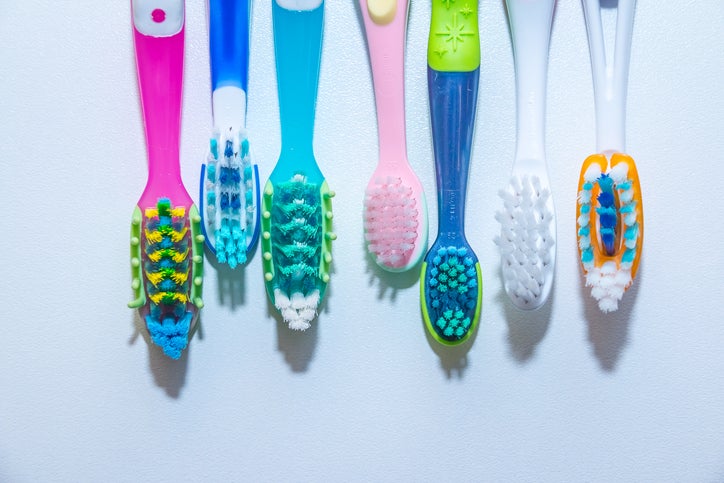
- First, consider the size. Choose a toothbrush with a head that will easily fit into your mouth and access all the surfaces of your teeth. Typically, this means picking a brush with a head about a half-inch wide and one inch tall, so that you can reach even the difficult places, like the sides and backs of your molars. Make sure the handle is long enough to fit comfortably in your hand and easily reach the back of your mouth.
- Pick the right bristles. For most people, a soft-bristled toothbrush is best, because it won’t damage the gums or tooth enamel. For further protection, you might want to choose a brush with rounded tips on the bristles.
- Ask an expert. To be sure you’re choosing the right toothbrush, consider asking your dentist for a recommendation, or look for a toothbrush with the American Dental Association (ADA) Seal of Approval. This seal ensures that the bristles will have safe tips and won’t fall out of the toothbrush, the handle will withstand normal use, and the toothbrush will reduce plaque build-up and gum disease. If the toothbrush is electric, it must undergo independent safety testing to earn the seal, proving that it can be safely used on the tissues of the mouth and teeth, as well as dental hardware.
- Which is better, disposable or electric? Manual and powered toothbrushes are equally effective, as long as you’re using proper technique and brushing at least twice a day. Some studies indicate that a rotation oscillation powered toothbrush is best, though other studies suggest that electric toothbrushes increase the risk of infection for people with certain heart conditions. Electric toothbrushes are more expensive, but some people find them easier to use, especially people with conditions like arthritis, which limits mobility. Ultimately, the best choice for you is the toothbrush you like best because you’ll be more likely to use it.
- How do you choose for a child? Choose a toothbrush your child will find appealing and want to use. Make sure it’s got the ADA Seal of Approval and is child-sized, with soft bristles. Involve the child, if possible, to make tooth-brushing more exciting.
If you need a dentist in New York, consider Park 56 Dental Group, where we provide personalized, quality dental care in a spa-like environment. We serve the Midtown, Central Park, Upper East Side, Park Avenue, and all surrounding Manhattan and New York areas, with a patient-centered practice that has hours to fit your schedule. Schedule your complimentary consultation today by contacting us online or calling us at (212) 826-2322.
4 Tips for Better Dental Health
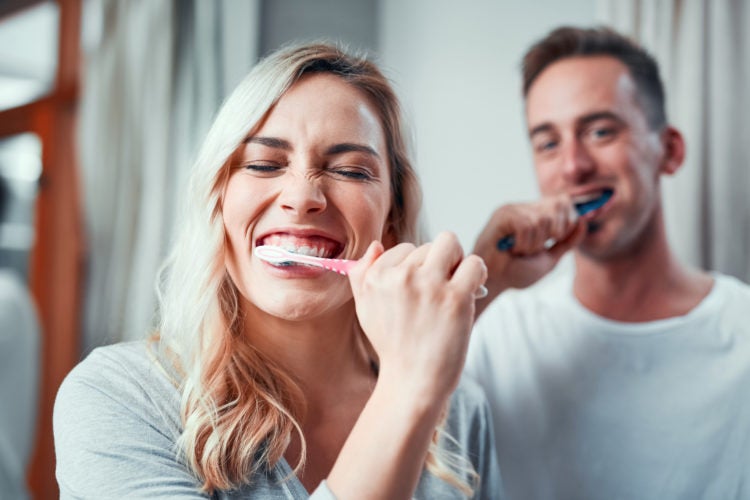
You’ve heard it all before: brush your teeth twice daily, floss regularly, see your dentist every six months, and don’t eat too much sugar. Still, even if you do everything right, you may learn that you need the occasional filling. Why would that be? The fact is, you might be doing it wrong.
First, let’s talk about brushing.
By brushing, you remove plaque, a sticky substance made of bacteria, bacterial acid, sticky byproducts and remnants of food. Plaque forms on teeth immediately after you eat, and for a while, it just sits there. After about 12 hours, it matures and starts damaging your teeth. The bacteria consume sugar and produce acids, which dissolve the minerals out of your teeth, forming microscopic holes. If you don’t stop the process, those holes turn into cavities.
How do you stop it? First, spend two minutes brushing your teeth, twice a day. Two minutes might seem like a long time, but it’s good for effectively removing plaque. Brushing for two minutes twice a day keeps bacteria from reaching the stage where it starts producing acid. A small, medium-bristled toothbrush, employed in small, circular, back and forth motions will clean your teeth effectively without harming your gums.
You should be using fluoride, but you should also be using disclosure tablets.
Fluoride toothpaste prevents tooth decay by replacing lost minerals and making your teeth stronger. Ask your dentist for recommendations, because some brands don’t have strong enough fluoride. Another tool for conquering plaque is disclosure tablets, which make plaque visible so you can see the spots you’ve missed.
Spitting is better than rinsing.
You don’t produce very much saliva at night, making your teeth more vulnerable when you’re sleeping than they are during the day. Brush before bed to remove plaque and food debris, but don’t rinse your mouth, because you’ll rinse away the fluoride before it gets a chance to work. Just spit, and then don’t eat or drink anything except water.
Watch your sugar even more than you are.
You may think you’re limiting sugar enough, but it can be helpful to count the amounts of “sugar hits” you’re consuming each day, keeping it to four or less. One can of soda has more sugar than you should consume in one day. While sugars found in whole fruits are not damaging, sugar in processed carbohydrates like chips and sweet snacks counts as a sugar hit.
One of the best things you can do for your dental health is to see a dentist every six months.
If you’re looking for a dentist in New York, consider Park 56 Dental Group, where we provide personalized, quality dental care in a spa-like environment. We serve the Midtown, Central Park, Upper East Side, Park Avenue, and all surrounding Manhattan and New York areas, with a patient-centered practice that has hours to fit your schedule. Schedule your complimentary consultation today by contacting us online or calling (212) 826-2322.
When It’s Not a Good Idea to Brush Your Teeth After You Eat
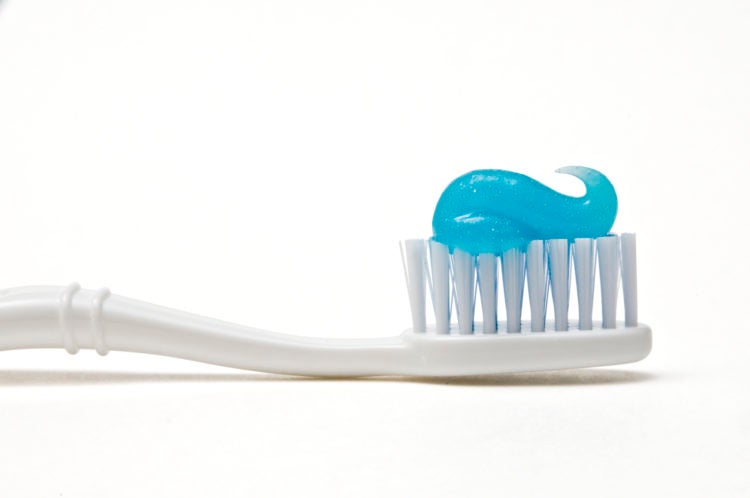
So you know you’re supposed to brush your teeth at least twice a day, right? If you’re like most of us, you probably figure that the more times a day you brush your teeth, the better. Well, guess what? According to dentists, afterward after a meal can do more harm than good.
Do you brush your teeth after breakfast? It may be better to brush when you first wake up, instead. This is because when you eat or drink something with a low pH level, it can damage your enamel to brush immediately afterward. Which foods have low pH levels? Anything acidic, like citrus fruits. So if you’ve had orange juice with your breakfast, for instance, brushing your teeth right after your meal can wear away at your enamel. (By the way, coffee is acidic too, but not as acidic as citrus.)
Why is it bad to brush after eating acidic foods? These foods can soften your enamel, and then when you brush, you can wear that enamel down. When your enamel wears away, it allows cavities to form in your mouth. If you’ve eaten anything sugary that can stick to your teeth, you’re at an even higher risk of cavities, because that sugar can stay in the mouth even after brushing. Rather than brushing right after a meal, it’s a better idea to rinse with water to remove any food particles from your mouth, and then wait at least thirty minutes after a meal before picking up your toothbrush.
What happens during those thirty minutes? Your saliva goes to work. Saliva is one of the body’s biggest defenses against tooth enamel erosion and cavities. It neutralizes the pH in your mouth, making it safe for you to brush without fear of eroding your teeth.
For optimal oral health, brush at least twice a day, allowing at least thirty minutes after a meal before brushing. Use a soft-bristled brush, and brush your teeth for two minutes, using short, circular back and forth motions, and remembering to brush your tongue as well. Floss at least once a day, and use a mouthwash with fluoride. Eat a nutrient-dense diet, full of fruits, vegetables, and calcium-rich foods, and see your dentist every six months.
If you’re looking for a dentist in New York, consider Park 56 Dental Group, where we provide personalized, quality dental care in a spa-like environment. We serve the Midtown, Central Park, Upper East Side, Park Avenue, and all surrounding Manhattan and New York areas, with a patient-centered practice that has hours to fit your schedule. Schedule your complimentary consultation today by contacting us online or calling us at (212) 826-2322.
Oral Health Tips

Is it inevitable for people to lose their teeth as they get older? Many people believe that to be true, but in fact, it’s a persistent myth. It’s normal to lose your baby teeth, but losing your adult teeth is not a normal part of the aging process. In fact, if you take care of your teeth, you can maintain good oral health throughout your lifetime. We’ve got some tips to help you make that happen.
- First, embrace fluoride. Some people are skeptical about fluoride because they believe it to be dangerous. Misinterpreting data, people claim that fluoride causes everything from dementia to bone cancer. In fact, every major health organization is in agreement that fluoride is beneficial. By adding fluoride to the community water systems, the United States has reduced oral health problems significantly. Drinking fluoridated water and brushing with fluoride toothpaste protects teeth from decay.
- Make good oral hygiene a habit. Brush your teeth for two minutes, two times a day. Floss between your teeth at least once a day, and follow it up by rinsing with a fluoride mouthwash. Visit your dentist every six months, so that any problems with your mouth can be caught early.
- Just say no to tobacco. Don’t use any tobacco products at all. If you are a smoker, quit. If you’re having trouble quitting, talk to your doctor and get some help.
- Limit your alcohol consumption. Drinking too much alcohol greatly increases your risk of oral cancer.
- Keep diabetes under control. Diabetes can increase your risk of gum disease and other complications. At the same time, periodontal disease can increase blood sugar.
- Pack your diet with nutrients. Limit sugar, eat nutrient-dense foods like fruits and vegetables, along with plenty of protein and calcium. Drink water to stay hydrated.
- Try to avoid dry mouth. If you’re taking medication that causes dry mouth, ask for a different medication. If it is unavoidable, drink plenty of water and chew sugarless gum. Saliva helps keep your mouth’s pH healthy.
- See your dentist as soon as possible if there’s a problem. Sudden, changes in taste or smell should be reported immediately.
If you’re a caregiver for an older person, assist in brushing and flossing if the person can’t do it independently. Schedule regular dental exams for the person in your care, and be aware of the way any medication may be affecting his or her oral health. Often, medication can impede a senior’s ability to practice good oral hygiene and can cause dental issues like dry mouth.
If you need a dentist in New York, consider Park 56 Dental Group, where we provide personalized, quality dental care in a spa-like environment. We serve the Midtown, Central Park, Upper East Side, Park Avenue, and all surrounding Manhattan and New York areas, with a patient-centered practice that has hours to fit your schedule. Schedule your complimentary consultation today by contacting us online or calling us at (212) 826-2322.
RECENT POSTS
categories
- Uncategorized
- Cosmetic Dentistry
- Veneers
- Healthier Teeth
- Teeth Whitening
- Dental Health
- Video
- Dental Emergencies
- Invisalign
- Dental Implants
- Root Canal
- Sedation Dentistry
- Infographic
- Dental Crowns and Bridges
- Dental Anxiety
- Gum Disease
- COVID-19
- Bad Breath
- New York Dentist
- Cut out sugar
- General Dentistry
- Oral Health
- Oral Cancer
- Dry Mouth
- Gum Health
- Toothache
- Dental Sealants
- Cavities
